‘3 Upuan’: Shared lives and stored losses
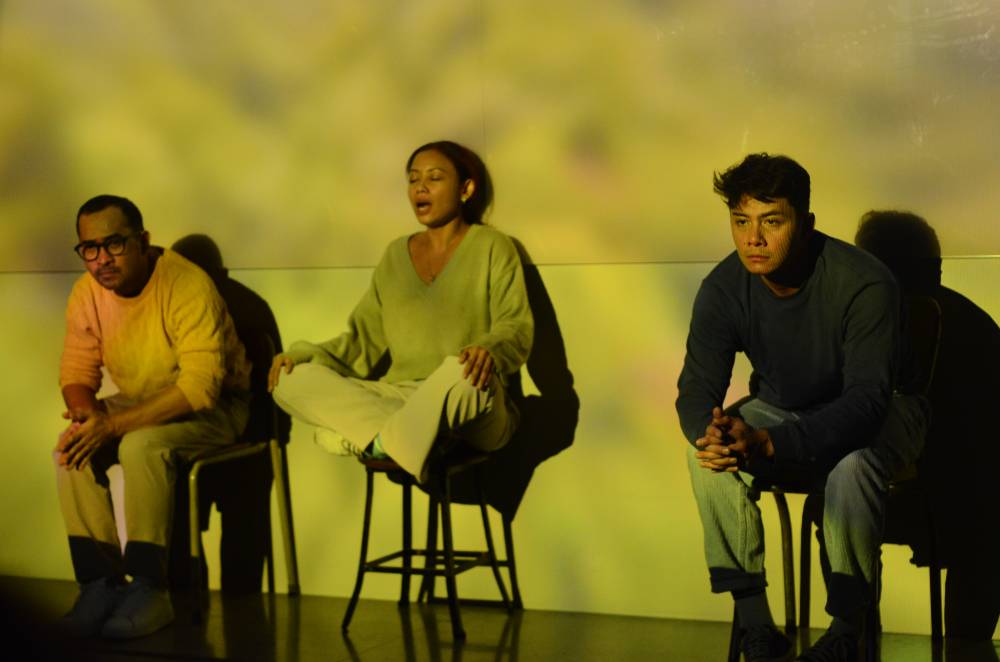
I was intrigued by the play “3 Upuan” because it was a challenge getting tickets for it, and the writer-director Guelan Varela Luarca had long been associated with Tanghalang Ateneo and the legendary Ricky Abad.
The reputation of Luarca as a bright rising star (yes, he has risen) could not be ignored. In 2024, he was inducted into the Don Carlos Palanca Memorial Awards Hall of Fame after winning the top prize five times for the Full-Length Play category.
Catching the 90-minute play at a preview made it easy to see why it is sought after. Also, the limited 60-seat capacity for intimate theater such as this is another reason for the quick sellout. Ironically, three chairs on stage also translate to such limited chairs for the audience. (One has to find humor in that.)
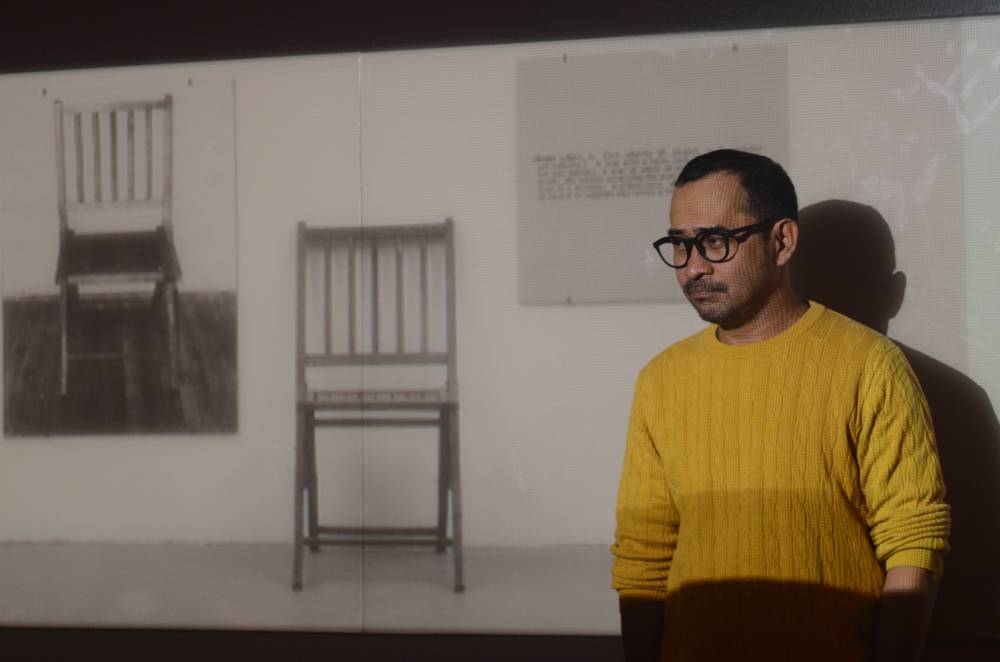
Billed as a play of time and grief, it also emphasizes the theme of family. Thus, the personal, intimate, and gripping theater experience that it is. The conversations do not seem appropriate for public sharing, but to be spoken in low, hushed, often pained tones.
The stage is bare except for three simple no-frills functional chairs. And that seems more than adequate for the feelings bared by both actors and the audience. Aside from the three actors, a voice over the PA system leads us through the time sequence, the days of the week, the time that has elapsed.
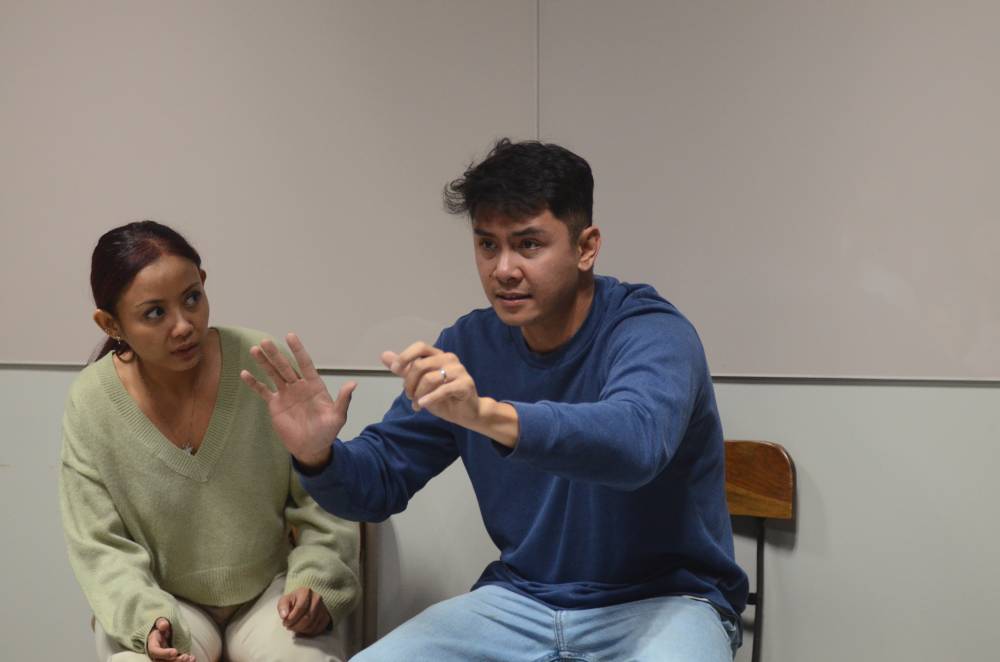
Grief and loss
Three siblings on stage take us through their shared lives and personal crises. There are the two brothers, Jers and Jack. The youngest sibling is their sister, Jai. They come together in grief and loss and while realizing that they draw strength from one another, they are jolted with the reality that close as they seemingly must be, they are, in the end, strangers who have grown apart.
These circumstances resonate with the audience, for whom the experience is all too familiar.
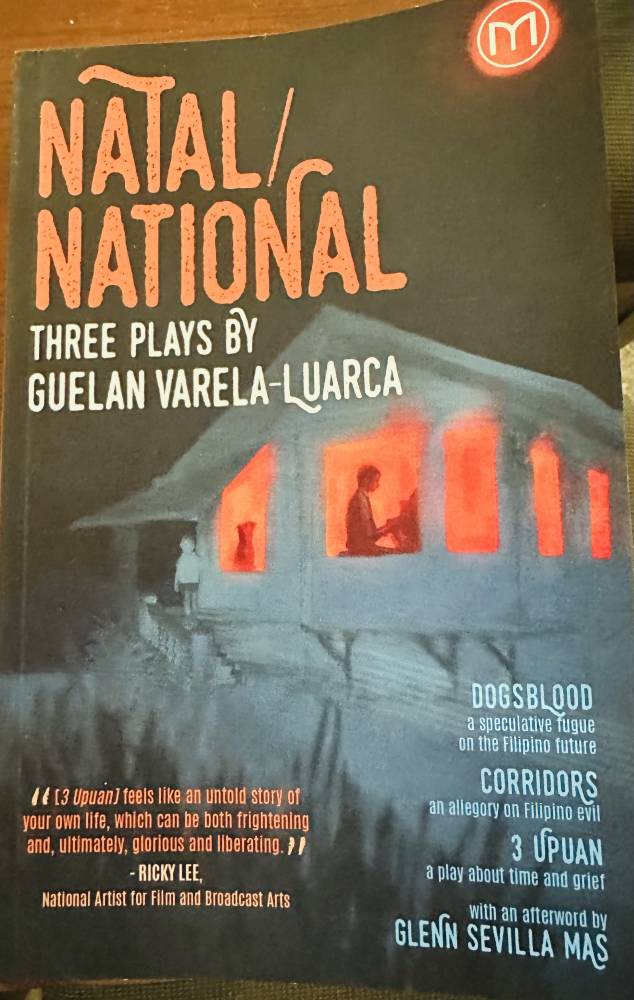
“How can people have literally the same flesh and blood and know so little of each other? Be so unlike each other? We grew apart even if we lived in the same house—and we stopped changing in each other’s eyes… we started hiding our shames from each other. Our heartaches. Our most indecent joys… we stopped knowing each other.”
It is Jai who expresses this, even as the siblings are certain of their affection for one another.
Through different postures on their chairs, the characters reveal what matters most to them. Jers is portrayed as a professor, obsessed with the idea of Plato’s allegory of the cave, distinguishing between the nature of knowledge and what is perceived as reality.
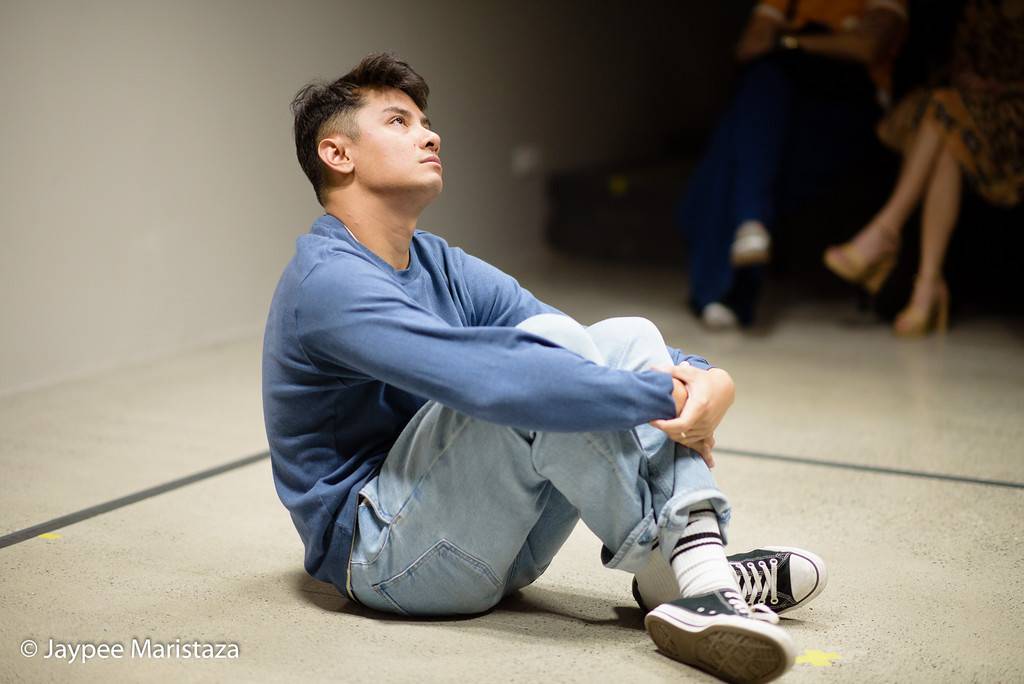
Jai is the sister residing in the US, brought back to the home country with the deaths of Mama, Papa, Jack, and Jers. Such losses shatter what time means to her.
Jack is a promising talented artist, a successful, wealthy one at a young age, but who squanders all these with the demons he has to fight, the losses of his parents among them, and the inability to support his daughter. His troubles and eventual death are foreshadowed by his comments about not wanting to be left alone at home, his secret daily visits to the tombstones of his parents, and his amazement at a seemingly bright new day: “Ang liwanag ngayon—kelan kaya didilim ulit? Ayokong umabot doon.”
Jack does not want to be alone and Jai’s refrain is similar: “Jack, Kuya, stay with me.”
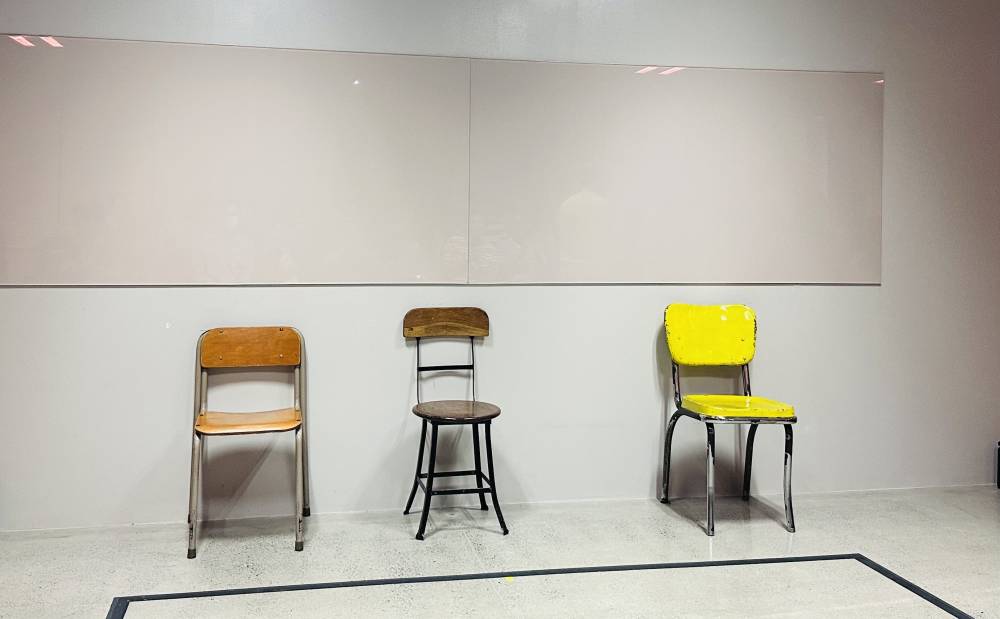
Commendable portrayals
The portrayals by actors Jojit Lorenzo, JC Santos, and Martha Comia in this powerful and gripping play are commendable. It is brilliant how the fast pace of the narration, efficiently handled, with the actors themselves positioning and repositioning the chairs to reflect different times and moods, is maintained.
Most poignant is when the three siblings reunite at the end, reminiscing past times, signaling how time is being rewound with the simple word “Atras.” Many times, more than a mere imperative, it is a signal to an escape further back in time before all this grief and loss.

One cannot leave the play without reflecting deeply on one’s stored losses and their impact on one’s being. Life changes yet continues with a semblance of joy and renewed courage. Hope is renewed only because of a storehouse of memories.
Jai the journalist says it best: “I can move easily from present to future to past. The future is not so interesting. Lahat naman tayo mamamatay. It’s the past that’s really…juicy. Kaya ko binabalikan.”
It continues to be a sell-out show, but there remains the constant hope that more reruns will happen, as what has happened since its initial staging in Arete in September 2024. Final shows on this run are on Feb. 23, 3 p.m. and 8 p.m.

















